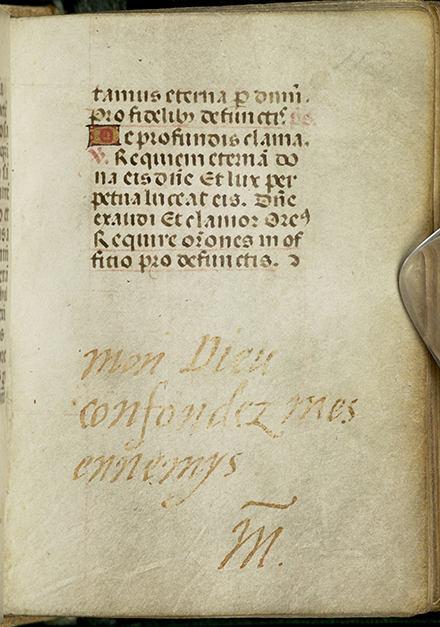PhD Scholarship: Marginalia and the early modern woman writer, 1530-1660
$33,092 per annum, 3 years
ARC Future Fellowship: FT180100371

The PhD candidate will work on an aspect of Professor Smith’s Future Fellowship Project on early modern women’s marginalia. This Project aims to provide an ambitious new literary history of how early modern women read and wrote in the margins of their books, uncovering new texts, practices, writers and readers across the sixteenth and seventeenth centuries. Reading is a central mechanism through which the English Renaissance was instituted: a means by which the classical world reached the early modern subject and vernacular textual culture came to flourish. Evidence for how reading operated can be found in the traces readers left behind in their books, including marginal annotations. These annotations provide not only crucial evidence of reading practice, but also an overlooked source of writing. A world of textual activity can be found here: marks, signatures, requests for remembrance, short lyrics, devotional meditations, letters and extended prose tracts teem in the margins of early modern books and manuscripts, in both scribal and print forms. The margin has emerged as one of the most significant new textual sites of the period, moving from the edges of scholarship to a place of central importance. However, most scholarship in this field still focuses on men’s use of marginalia, overlooking hundreds of instances of marginal annotation by women. This project will provide the first comprehensive examination of how early modern women readers engaged with the margins of their books. It will expand our conception of what constituted early modern women’s writing and how it was circulated. It will also reevaluate, from a new perspective, our understanding of reading, writing and book history.
Applications should have:
- A first-class Honours (H1) or equivalent degree in a relevant field, such as literary studies, historical studies or gender studies
- Have demonstrated experience or interest in digital methods in the humanities
- Be a creative, critical, independent thinker with excellent communication and collaboration skills
- Be available to commence full-time study in 2020.
The successful applicant will receive a PhD stipend of $33,092 per annum, as well as generous fieldwork support.
The recipient is required to remain enrolled full-time in a program of study for the degree of Doctor of Philosophy at the Australian National University in the program for which the Award is offered.
How to Apply
Available to Australian domestic and international students.
Contact Professor Rosalind Smith for more details and to discuss your proposal.
Deadline: Applications open 1 July 2020 and closes 1 August 2020.
Note that the successful applicant will still have to apply through the usual channels to the CASS PhD program.